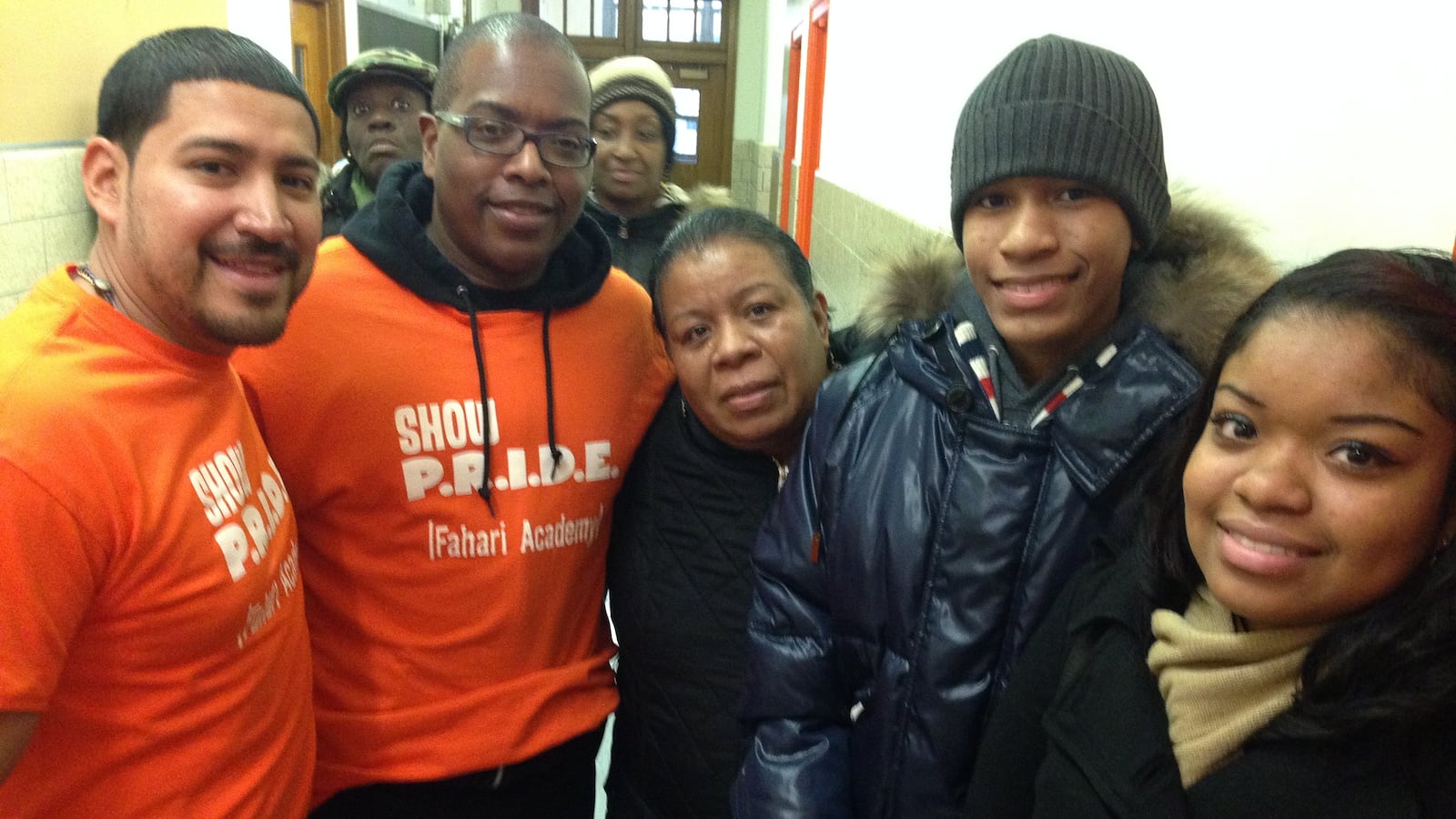A lawsuit filed last week by an embattled Brooklyn charter school could force Mayor Bill de Blasio to confront yet another one of his education campaign pledges — about school closures.
In November, citing the school’s poor performance, the Bloomberg administration recommended that Fahari Academy Charter School not be allowed to remain open after June.
Now, Fahari has filed suit— but only to avoid losing the right to pursue legal action because of a statute of limitations. The school’s lawyer said he’s confident that with de Blasio in office, the dispute can be handled out of court.
“We have a beef with the previous administration’s decision,”said Matthew Delforte, who filed the suit last week. The lawsuit charges that the city’s decision was made on faulty grounds, in part because the struggling school is improving, but Delforte said he would not pursue the suit if de Blasio overturns the Bloomberg administration’s decision.
Delforte said he believes that de Blasio and Chancellor Carmen Fariña’s approach to struggling schools put them on Fahari’s side. While Mayor Bloomberg saw the replacement of staff and administrators through school closure as the fastest and most effective way to improve schools, de Blasio criticized the controversial policy during his campaign for mayor.
“To too many people over at the Tweed building, closing a school is a panacea. They think it will solve all our problems,” de Blasio said in 2012 while public advocate.
Last year, Fariña said that struggling schools could improve if their principals and teachers had more opportunities to learn from other schools that produced better results. “Principal-to-principal, teachers-to-teachers, are the best vehicle to professional development that I know,” she said.
Students tend to perform better in new schools than the low-performing schools that were closed down, research has shown. But the results have been clouded by the finding that new schools have fewer students with the highest academic needs.
The city’s decision in November came after the Department of Education first placed Fahari under probation in 2012 following a tumultuous first three years of operation marked by low test scores, high staff turnover and student attrition. Last year, fewer than one in 10 students passed the 2013 English or math state tests.
The school has taken moves to correct its early missteps, bringing in new leadership and overhauling its curriculum to make it more aligned to Common Core learning standards. Officials at Fahari say the school has turned a corner and is now headed in the right direction.
“The [non-renewal] decision is really based on a school that no longer exists,” Delforte said. “It’s two really different places.”
Fahari supporters, including United Federation of Teachers President Michael Mulgrew, have lobbied the de Blasio administration to reverse the decision and renew the school’s charter, which would then be kicked up to the Board of Regents for final approval.
“[I]…join the Fahari community in urging you to rescind your predecessor’s recommendation and instead recommend to the Regents that the school’s charter should be renewed for another term,” Mulgrew said.
A department spokesman did not comment on the lawsuit, but said in a statement that no decisions about Fahari have been made. The issue is part of the long list of Bloomberg-era policies that Fariña is still reviewing, nearly four months into her tenure.
“Since January 1st, we’ve been engaging in a top-to-bottom review of every decision and policy that we inherited,” said the spokesman, Harry Hartfield. “That includes the non-renewal of Fahari.”
The lawsuit alleges that the city’s decision was wrong on several grounds, including that the non-renewal was not decided in the way that state law dictates. Delforte said the city’s decision should have been treated as a charter “revocation,” which would have given the school a chance to respond and provided an additional public hearing. It also argues that the city created and inconsistently applied some renewal standards, such as the school’s worst-ranked status on the city’s progress reports, while ignoring other ones, such as its popularity with parents and its improvement efforts.
“The DOE’s inconsistent application of standards reflects that in practice, there are no accountable standards guiding the DOE’s renewal or nonrenewal decisions,” the suit concludes.
The office that historically has overseen the city’s authorizing duties is in a state of flux, having recently lost its executive director, Sonia Park, who took a job running two Manhattan charter schools. It’s supposed to oversee city-authorized charter schools based on its own accountability criteria. But there is some concern that the ultimate accountability, to close low-performing charter schools, could be withheld if Fariña and de Blasio change their intervention approach for district schools, as they’ve pledged.
The ongoing uncertainty around Fahari has parents at the school anxious about where their kids will go to school next year. Tessa Minss, whose daughter is in fifth grade, said that if Fahari stays open, “I’m in.”
“But if it’s decided not to stay open, then I have to move her,” Minss said, adding “no one wants to keep moving their kids.”
Notice of Petition W Verified Petition Without Exhibits 03 12 13 (PDF)
Notice of Petition W Verified Petition Without Exhibits 03 12 13 (Text)

